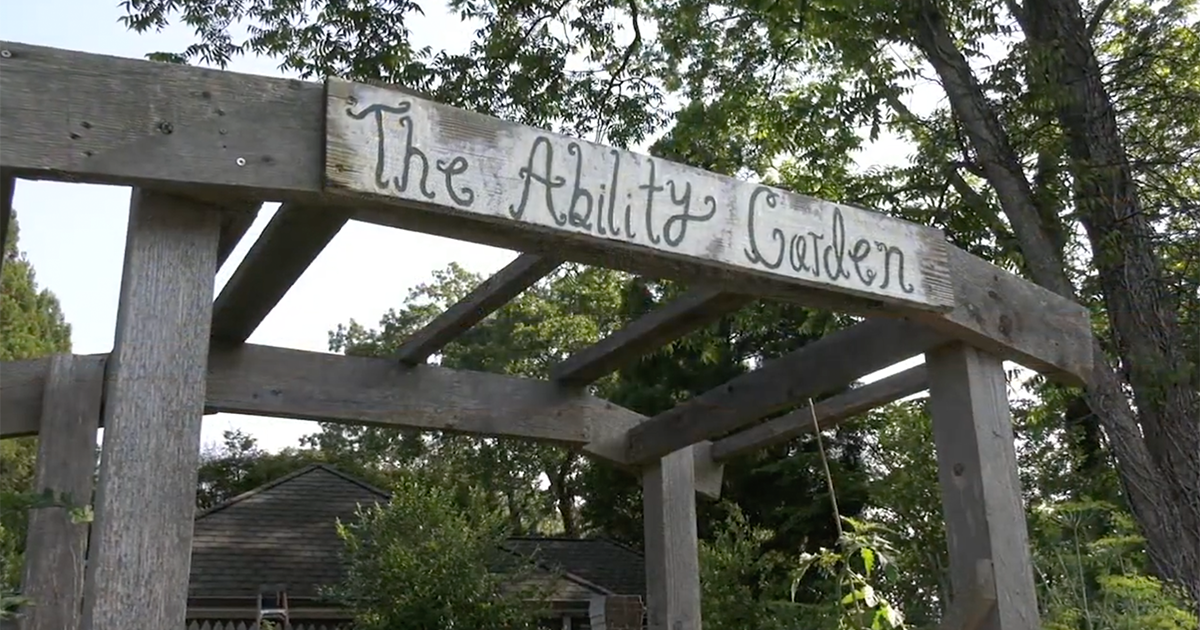Decatur, GA
When Rachel Cochran and Wendy Battaglia met a horticultural therapy training program, little did they know – this encounter would ignite a passion within them to make a difference. In 2017, they founded Trellis Horticultural Therapy Alliance. However, the concept for Trellis, that proverbial seed; well, it was planted long before that first encounter.
“Back when my children were in elementary school, we did a school garden and we had just finished building some raised beds at their elementary school, and we had spread all the wood chips around finishing the garden space. And at the end, a special ed teacher came out and said, is there any way for my kids to get involved? And my mouth dropped. And I’m thinking, you know, I never once considered a child that couldn’t get around this garden space. And from that day forward, I kept that in my mind thinking, you know, gardens should really be accessible to everyone,” says Rachel Cochran Co-founder of Trellis Horticultural Therapy Alliance.
Together, Rachel and Wendy created a service that supports, educates, and guides organizations and individuals through therapeutic gardening programs and accessible garden spaces.
On this day, we found Rachel fine-tuning what many are calling a groundbreaking project. – the ability garden at Collenwolde Fine Arts Center, the first wheelchair-accessible garden in Atlanta. Research has shown that gardening is a powerful tool when it comes to combating isolation and building self-confidence. Trellis, addresses the physical, mental, and cognitive health of various groups, including those experiencing mental health disorders. Or, in the case of Leroy Thompson, living with a long-term disability.
“I never questioned, why me? And I do know a lot of people ask those questions like, why me? I look at it like this; I can be in a lot worse situation. I could not be having this conversation with you today. So for whatever reason God spared me, I have to figure out what it is. If it’s to motivate others, if it’s to be an inspiration for others; I’ll do that. So I feel like that’s kind of, sort of the purpose behind it,” says Leroy Thompson.
“I mean, this place is beautiful. You come out here and you just instantly feel peace and that’s before you even connect and start learning the stories of the flowers and the vegetables and then the people behind it. I came in this scared to ask questions and they just opened the door. They, they took the time to talk to me on the phone, get me in. They invited me out here and I just saw instantly how warm they were, and their sessions just are proof of the lives they’re helping change,” says Chelsea Korzenko, and Intern with Trellis.
“They need an outlet. They need support,” says Cochran. “And so what we do is we provide the support as people, humans that understand what they’re going through, and we understand how to support people in a garden setting and to make it fun. And it’s not all about gardening, really. You know, what they teach us in our training is it’s not about the end product. It’s about the process. And our process is getting people excited about being outdoors, getting excited about this new learning potential that can be a recreation for them, and getting people together that have a shared history of injury or trauma and connecting those people so they feel like they are whole again.
As I watched him interact with others, and how he almost immediately embraced working in the raised beds, I can say without hesitation that Leroy Thompson thoroughly enjoyed his first trip to the ability garden. Will there be more trips? You bet!
“When I saw this ad in a spinal cord peer support group, I was like, this is what I want to do. And then also I’m able to be around others in my same situation. So there’s that bonding experience and learning some skills that honestly I think everybody should have,” says Thompson.
“It’s just like this spark, because I know what’s going through them. They’re feeling connection, they’re feeling that like discovery of the purpose and joy and beauty, whatever seeds they wanna start nurturing inside themselves. that that’s unfolding within them. And when I see that, I just want to help support them to keep, to keep asking those questions. Why, why is it like that? Why did I get an aha? And, have that in them when they go home? Because that’s, that’s what’s excavating underneath them,” says Korzenko.
“That Is how you heal. You know, you have to share these stories to move on. And this is what we’re all about here, is really connecting, socializing, you know, making a support network for the people that come,” says Cochran.
By: Ray D’Alessio

